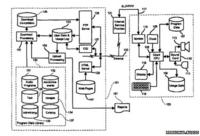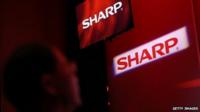
The authority that decides which letters a web address is allowed to finish with says it is concerned at the high charges for the new ".sucks" name.
The Internet Corporation for Assigned Names and Number (Icann) has asked the US and Canadian trade authorities to investigate Vox Populi, which secured the rights to sell the name.
The company denies any wrongdoing.
Many companies and celebrities have bought their name with controversial suffixes such as ".porn" or ".xxx".
Predatory selling
The last part of a web address that follows the final dot, such as ".com", ".org", and ".net", is referred to as a generic top level domain (gTLD).
Icann relaxed the rules governing gTLDs in 2012, and the latest to go up for sale is ".sucks".
Many companies and celebrities buy their brand or name with various gTLDs, to avoid any confusion with their official website addresses or to stop others buying them and posting negative content.

For example, singer Taylor Swift bought up taylorswift.xxx to prevent anyone else from using it.
Specialist online website Domain Incite reports that actor "Kevin Spacey, Microsoft, Google and Apple have already bought up '.sucks' sites in a bid to protect their reputations".
This practice is known as "defensive registering".
Icann granted Vox Populi permission to sell the ".sucks" names but is now concerned at the price levels the Canadian company has set.
Kevin Murphy, from Domain Incite, told the BBC two key elements of the way Vox Populi was handling the sale were causing concern.
"They are charging a $2,000 'sunrise' premium to those wishing to register '.sucks' addresses early, before the addresses go on sale to the general public [next month]," he said.
"Also they are using a list of words or names that have been defensively registered in the past, for which they are charging the top amount."
Mr Murphy said the company was working from a list of keywords that had been part of web addresses bought up early on in similar new domain web address sales and using that to decide which ".sucks" addresses to charge more for.

New gTLDs such as ".rocks" or ".forsale" typically sell for between $5 (£3.42) and $20 a year.
Beyond jurisdiction
But Murphy said: "They [Vox Populi] are charging a much bigger amount that you'd expect.
"They were considering a fee of $25,000 at one point when we spoke to them.
"I think they are charging as much as they can get away with.
"It [Vox Populi] justified the $2,000 premium price tag [for certain '.sucks' addresses] as being 'a reasonable part of a company's PR budget'.
"It appears they are basing prices on what firms can afford not on the product services they are providing."
In a strongly worded letter to Icann, the authority's own advisory body, the Intellectual Property Constituency (IPC), demanded a "halt" to Vox Populi's "illicit", "predatory" and "coercive" selling scheme.
But even though Icann approved the ".sucks" domain name sale and issued the licence to sell the related website addresses, it appears not to have jurisdiction over how they are sold.
There is no evidence that Vox Populi has done anything wrong, and the company told Domain Incite its pricing and policies were "well within the rules".
Icann has referred Vox Populi to the two bodies it believes may have the regulatory authority to investigate the company's practices: the Federal Trade Commission in the United States and the Canadian Office of Consumer Affairs, as the company is registered in Canada.
But unless the company has broken the law, it is not clear what powers Icann has over Vox Populi's handing of the sale of ".sucks".




















